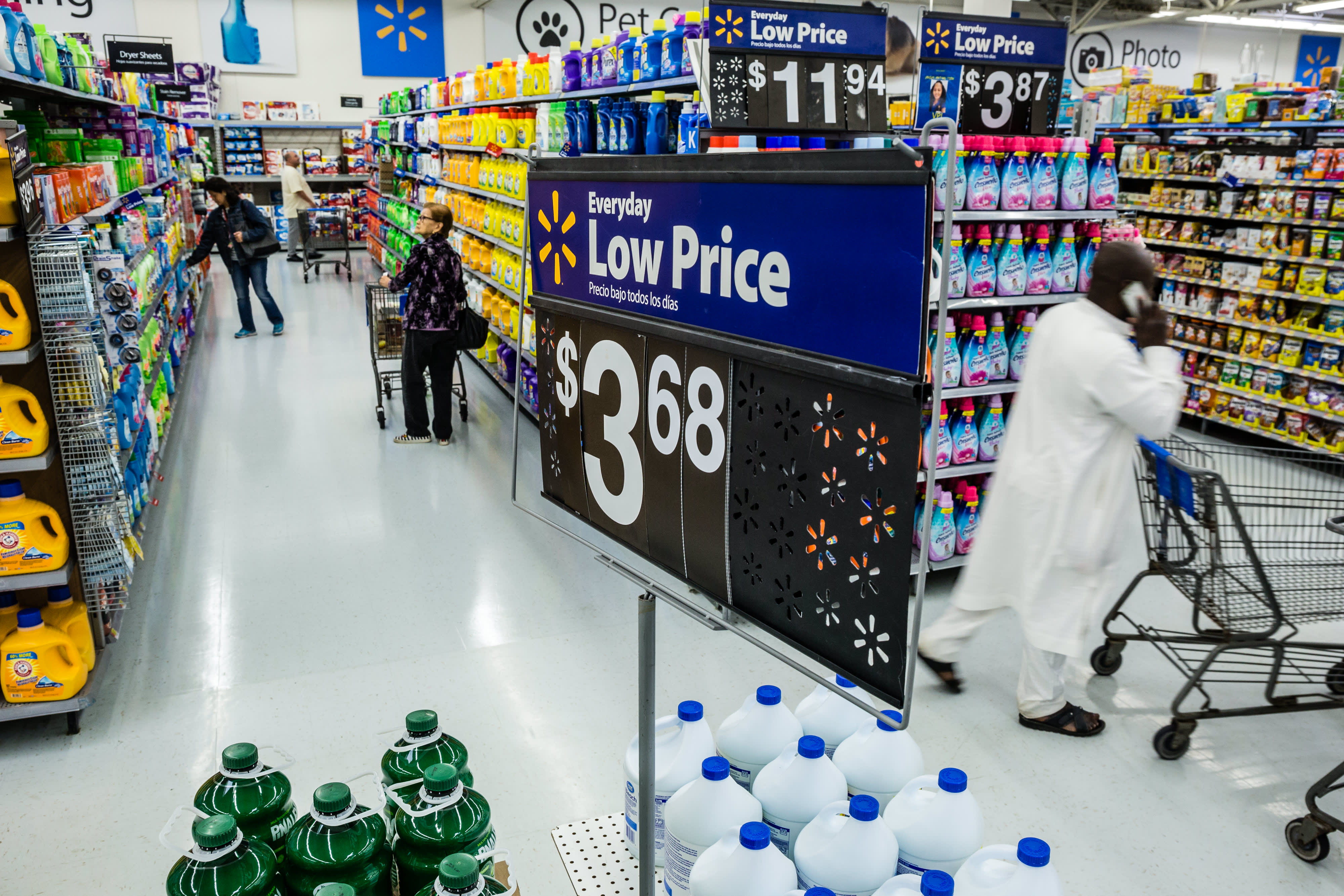This post was originally published on this site

Customers shop at a Walmart store in Secaucus, New Jersey, May 16, 2018.
Timothy Fadek | Bloomberg | Getty Images
Wall Street is getting defensive.
Stocks have had a great run this year — hitting all-time record highs — but uncertainty around the U.S.-China trade war and the 2020 election paint a tepid picture for markets in the new year. UBS sees the market coming under pressure next year with a continued slowdown in the economy. Morgan Stanley is also bearish and recommends clients buy into defensive stocks, which are less tied to the economic cycle.
“We expect the market to vacillate between a pro-cyclical outcome and a defensive one as data comes in and trade tensions and the election evolve,” said Morgan Stanley chief U.S. equity strategist in a note to clients last week. “We slightly favor the more defensive outcome given our well below consensus forecast for S&P 500 earnings growth next year (flat versus approximately 10% growth for the bottom up consensus).”
Health care, utilities and consumer staples stocks are classic defensive stocks. The theory behind defensive stocks is that even in harder economic times, people will still pay for health-related items like medications and hospital visits. Plus, households and businesses will always need water and electricity and consumers will still purchase goods like toothpaste and laundry detergent.
As analysts bet on slower growth in 2020, and December kicked off to a rocky start, defensive stocks could become the rage. Here are the most-loved defensive stocks on Wall Street.
CNBC used FactSet to screen to Wall Street’s favorite defensive stocks by picking the health care, utility and consumer staple stocks with the highest percentage of buy ratings by Wall Street analysts. The stocks also have at least a 10% upside to their 12-month price target, which is an attractive return considering the median S&P 500 strategist target for year-end 2020 is 3,325, about 5.4% above Friday’s close. The companies also have a market valuation above $5 billion and pay at least a 1% dividend yield.
NextEra Energy, the largest producer of wind and solar energy, is the most loved defensive stock in the data set with nearly 90% of analysts recommending it a buy. Total shareholder return for NextEra includes 8% to 9% earnings growth with a 2.2% dividend yield, J.P. Morgan said in a note to clients.
“Gulf Power growth from cost cuts and new investments is also expected to be a major driver of growth in the next 2 years,” said J.P. Morgan utilities analyst Christopher Turnure in a note to clients. The firm has an overweight rating on NextEra. Shares of NextEra are up about 35% this year.
Tyson Foods and Walmart are the two consumer staples stocks on the list. Walmart is the largest retailer in the world and remains a top retail pick among many analysts for its ability to compete with e-commerce giant Amazon. A strong grocery business helped Walmart‘s online sales grow 41% in the third quarter, the company said last month, fueling an earnings beat and 21 quarters of growth in the U.S.
On the first two trading days of December last week, the Dow Jones Industrial Average lost 2.35%, after President Donald Trump suggested he may want to delay a trade deal with China until after the 2020 presidential election. While the broader market was tumbling and investors feared stocks were in for a tumultuous December like last year, Walmart’s stock gained a modest 0.2%.
Health care loved
Health care is the most-represented sector within the defensive stocks on the list with Medtronic, Stryker, ResMed and CVS Health.
Medical device company Medtronic is delivering strong top-line growth bolstered by the sales of its minimally invasive therapies, brain therapies and pain therapies units and is benefiting from solid demand for med-tech products in emerging markets and China, according to Argus Research. Michigan-based Stryker, which sells implants used in a variety of surgeries, has acquired three medical companies since October. And ResMed, which specializes in sleep apnea and chronic respiratory diseases, is using big data to cut costs for distributors.
It’s been a little over a year since CVS Health’s acquisition of Aetna, creating the largest pharmacy in the country. The drug-store chain has nearly 10,000 retail locations, serves 4.5 million customers daily and manages 2.5 billion prescriptions.
“We are a health care company today,” CVS Health CEO Larry Merlo told CNBC’s “Squawk Box” on Thursday. “We have an opportunity, putting the consumer at the center of our strategy to transform the way health care is delivered in our country.”
— with reporting from CNBC’s Michael Bloom.




